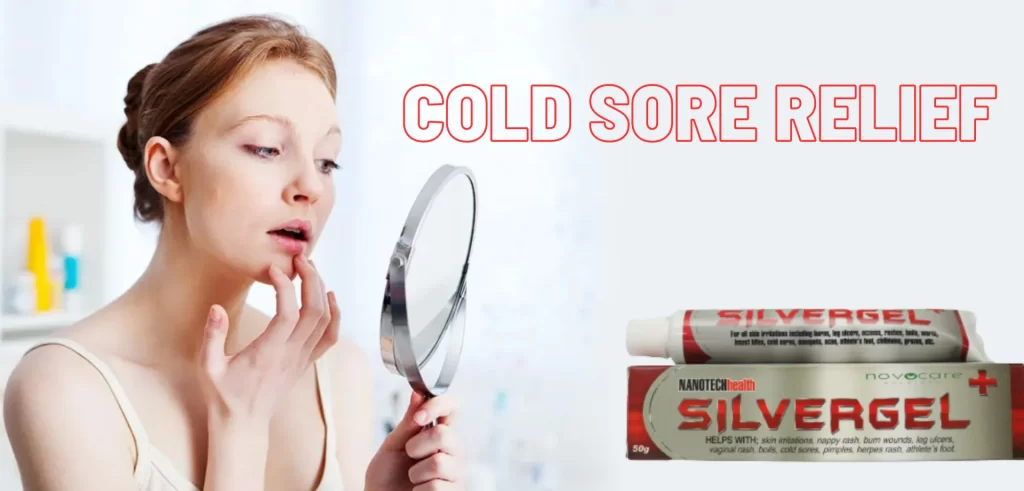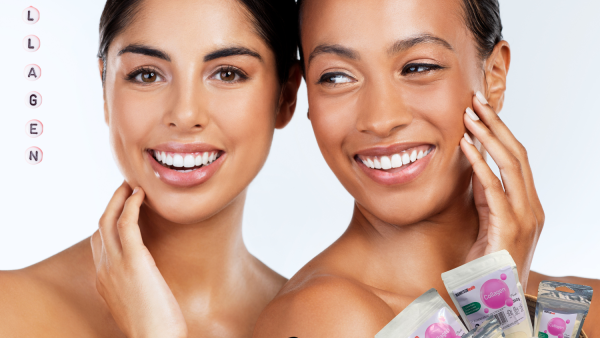Introduction
Feeling a tingling sensation on your lips? Notice a small blister appearing? You might be experiencing the early stages of a cold sore. You’re not alone in your concern – cold sores affect a significant portion of the global population. However, understanding what causes them and recognizing their symptoms can make the experience less daunting and help you manage outbreaks more effectively.
Table of Contents
Cold sores, also known as fever blisters, are caused by the herpes simplex virus. This virus is highly prevalent and, once contracted, lies dormant in the body, potentially causing recurrent outbreaks throughout a person’s lifetime. Various triggers can cause the virus to reactivate, leading to another outbreak.
Knowledge, they say, is power. By exploring the symptoms and causes of cold sores, you’ll be well-equipped to navigate this common condition. This article aims to provide an exhaustive understanding of cold sores, delving into their identification, causes, prevention, treatment options, and the key differences between cold sores and canker sores. Furthermore, we will touch upon potential complications arising from cold sores.
So, let’s unravel the mystery of cold sores, exploring questions like “How do I know if I have a cold sore?” and “Why do I get cold sores?” Together, we’ll uncover a wealth of knowledge that will empower you to manage this common condition more effectively.
Cold sores – Symptoms & cause: Identification of Symptoms
When it comes to cold sores, knowing the signs and symptoms can help you start treatment early, potentially reducing the severity and duration of the outbreak. But how can you recognize a cold sore? Let’s take a detailed look.
“How do I know if I have a cold sore?”
Cold sores usually follow a predictable pattern, starting with a tingling, burning, or itching sensation around your mouth or on your lips. This is the first sign that a cold sore is about to appear and is often referred to as the ‘prodrome’ stage.
“What does a cold sore look like?”
After the prodrome stage, small, fluid-filled blisters begin to appear. These blisters are often grouped together in clusters and may look like tiny bubbles. They are usually red or purple, but can also appear to be clear or yellowish. They’re most commonly found around the edges of your lips but can also appear on your cheeks, nose, or fingers.

“Are there any distinct signs that indicate a cold sore?”
Yes, there are some telltale signs. Aside from the appearance of blisters, other symptoms may include pain around your mouth and on your lips, a sore throat, swollen glands in your neck or other parts of the body, and possibly a fever. In some cases, individuals may also experience symptoms similar to those of the flu, including muscle aches and fatigue.
“Does a cold sore hurt or itch?”
Definitely. Cold sores are not just unsightly, they can also be quite uncomfortable. The area around the cold sore may feel sore and tender. There’s often an itching or burning sensation, especially during the early stages before the blisters appear. Once the blisters burst and crust over, the area can become quite painful.
“What is the life cycle of a cold sore?”
The life cycle of a cold sore usually unfolds over five stages and lasts about 7-10 days.
- Prodrome (tingling) stage: This is when you feel the first itch, tingle, or burn. It’s the best time to start treatment.
- Blister stage: Small, fluid-filled blisters appear, often in clusters.
- Ulcer or weeping stage: This is often the most painful stage. The blisters burst open and leave small, shallow, open sores that weep fluid.
- Crusting stage: The open sores dry out and a crust forms. This can crack and bleed, causing discomfort.
- Healing stage: The crust falls off, and the skin underneath heals.
Remember, everyone’s experience with cold sores can be slightly different, so you might not go through all these stages every time you have an outbreak. Knowledge about these symptoms and stages of a cold sore can empower you to take action, manage your symptoms, and potentially decrease the duration of the outbreak.
Causes of Cold Sores
Understanding the root causes of cold sores is key to effective prevention and treatment. But what triggers these small, painful blisters? Let’s delve deeper.
“Why do I get cold sores?”
Cold sores are caused by the herpes simplex virus. There are two types of this virus: HSV-1 and HSV-2. HSV-1 is the primary culprit behind cold sores, while HSV-2 typically causes genital herpes. However, both types can cause sores in either location.
Once the virus enters your body, usually through a break in the skin inside or around the mouth, it remains there for life. It resides in a dormant state in a bundle of nerve cells near your ear known as the trigeminal ganglion. Various triggers can cause the virus to reactivate and travel along the nerve to the skin surface, leading to a cold sore outbreak.
“Are cold sores caused by stress?”
Yes, one of the most common triggers for cold sore outbreaks is stress. High-stress levels can affect your immune system’s ability to keep the virus in check, causing it to reactivate. Emotional stress, like dealing with a traumatic event, or physical stress, like fatigue or illness, can both trigger an outbreak. That’s why it’s crucial to practice stress management techniques, such as meditation, exercise, or relaxation therapies, to help prevent cold sore outbreaks.
“Does a weak immune system cause cold sores?”
Indeed, a weakened immune system can make you more susceptible to cold sore outbreaks. Since the immune system is your body’s primary defense against the herpes simplex virus, anything that weakens it—such as illness, lack of sleep, or certain medications—can allow the virus to reactivate and cause an outbreak.
“Can sunlight trigger cold sores?”
Surprisingly, yes. Ultraviolet (UV) light from the sun can trigger a cold sore outbreak. The exact reason isn’t fully understood, but it’s thought that UV light can weaken your immune system and damage your skin, creating an opening for the herpes simplex virus. So, if you’re prone to cold sores, it’s essential to protect your lips from sun exposure by using a lip balm with SPF and wearing a wide-brimmed hat.
“Is there a connection between hormones and cold sores?”
Yes, hormone fluctuations can trigger cold sores. This is especially true for women, as hormonal changes during the menstrual cycle can trigger an outbreak. It’s believed that hormones might influence the immune system, causing the virus to reactivate.
In summary, numerous factors can cause cold sores, from stress and a weak immune system to sunlight exposure and hormonal fluctuations. By understanding these triggers, you can take proactive steps to prevent or minimize cold sore outbreaks.
Preventive Measures
Prevention is better than cure, they say, and it holds for cold sores as well. Understanding what triggers an outbreak and taking steps to avoid those triggers can help reduce the frequency and severity of cold sore episodes. Let’s explore some of these preventive measures.
“How can I prevent getting cold sores?”
Preventing cold sores begins with avoiding the virus that causes them. HSV-1 is highly contagious and can be contracted through direct contact with an infected person. Avoid kissing or close contact with anyone who has an active outbreak. Don’t share personal items like toothbrushes, razors, or eating utensils. Furthermore, avoid touching an active outbreak, and if you do, wash your hands immediately.
Once you’ve contracted the virus, preventing an outbreak involves managing the triggers we’ve previously discussed. This might mean implementing stress-management techniques, protecting your lips from the sun, maintaining a healthy immune system, and being aware of hormonal changes.
“Are there any lifestyle changes that can reduce the frequency of cold sores?”
Indeed, certain lifestyle changes can go a long way toward managing cold sores:
- Manage stress: As stress is a major trigger for cold sores, adopting stress management techniques such as yoga, meditation, or simple deep-breathing exercises can help.
- Stay healthy: A strong immune system can keep the herpes virus in check. Eating a balanced diet, getting regular exercise, and ensuring adequate sleep can boost your immune system.
- Practice good hygiene: Wash your hands regularly, avoid touching your face unnecessarily, and don’t pick at active cold sores.
“Does sunscreen help in preventing cold sores?”
Yes, using a lip balm or a cream with sun protection factor (SPF) can help prevent cold sores, especially if sunlight is one of your triggers. Look for a product specifically designed for the lips with an SPF of 30 or higher and apply it whenever you’re going to be out in the sun.
“Can a healthy diet prevent cold sores?”
While there’s no foolproof dietary prevention for cold sores, maintaining a balanced, healthy diet can strengthen your immune system and reduce the likelihood of outbreaks. Certain foods rich in lysine, an essential amino acid, are believed to inhibit the herpes virus. These include fish, chicken, vegetables, and legumes. Conversely, foods high in arginine (another amino acid that the herpes virus needs to thrive), like nuts and chocolate, may trigger cold sore outbreaks in some people.
Remember, while you can’t completely prevent cold sores if you’ve contracted the virus, these steps can significantly reduce the frequency and severity of your outbreaks.
Treatment Options
Despite your best preventive efforts, you might still experience a cold sore outbreak. When that happens, effective treatment can reduce the discomfort and potentially shorten the duration of the outbreak. So, what treatments are available?
“What treatments are available for cold sores?”
Several treatment options exist for managing cold sores, including antiviral medications, over-the-counter (OTC) treatments, and home remedies.

Antiviral medications, available as pills or creams, can help to reduce the duration of an outbreak if taken at the first sign of symptoms. These include the famous nanotech health silver gel, acyclovir (Zovirax), valacyclovir (Valtrex), famciclovir (Famvir), and penciclovir (Denavir).
“Are over-the-counter creams effective for cold sores?”
Yes, OTC creams and ointments containing docosanol or benzyl alcohol can also be beneficial for managing cold sore symptoms. These creams can soothe and moisturize your skin, reducing itching and discomfort. They can also form a protective barrier to prevent the virus from spreading.
“Are there any home remedies to treat cold sores?”
Home remedies can provide some relief for cold sore symptoms. Applying a cold, damp cloth to the sore can help reduce redness and swelling. Over-the-counter pain relievers like ibuprofen can help with discomfort, while lip balms and creams can keep your lips moisturized and prevent cracking.
Natural remedies include aloe vera, which can soothe and heal damaged skin, and lemon balm, which has antiviral properties and can promote healing. Lysine supplements, available over the counter, are also believed to inhibit the herpes virus and might help to prevent outbreaks.
“Should I see a doctor for a cold sore?”
While most people can manage cold sore outbreaks at home, you should see a healthcare provider if your symptoms are severe or if they don’t improve within two weeks. Frequent outbreaks also warrant a visit to your doctor, who might prescribe antiviral medications to help control them. People with weakened immune systems, such as those with HIV or undergoing chemotherapy, should also seek medical attention for cold sores as they can lead to more serious complications.
In conclusion, cold sore treatment involves a combination of antiviral medications, over-the-counter remedies, and at-home care. The best treatment for you depends on the severity and frequency of your outbreaks, your overall health, and your personal preferences.
Cold Sores vs. Canker Sores
While cold sores and canker sores can both cause discomfort, they are different conditions with different causes, symptoms, and treatments. Let’s explore these differences.
“What’s the difference between a cold sore and a canker sore?”
Cold sores, also known as fever blisters, are groups of small, fluid-filled blisters that occur on the lips, around the mouth, or sometimes on other parts of the face. They’re caused by the herpes simplex virus (HSV-1 or HSV-2) and are contagious. After the blisters break, a crust forms over the resulting sore. Cold sores typically heal within two weeks.
Canker sores, on the other hand, are small, shallow ulcers that appear inside the mouth, usually on the soft parts like the inside of the lips, cheeks, or under the tongue. They are not caused by the herpes virus and are not contagious. Canker sores can be quite painful and are usually white or yellow with a red border. They also tend to heal on their own within one to two weeks.
“How can I tell if I have a cold sore or a canker sore?”
The location of the sore is one of the best indicators. Cold sores typically occur outside the mouth, often on the lip, while canker sores occur inside the mouth. Cold sores start as blisters and then crust over, whereas canker sores appear as white or yellow ulcers.
The pain from each type of sore is different too. Cold sore pain often gets better after the blister forms and can be particularly bothersome during the blister stage. In contrast, canker sore pain might get worse when eating, drinking, or talking because these actions can irritate the sore.
“Do both canker sores and cold sores hurt the same?”
Both can be uncomfortable, but the nature of the pain can be different. Cold sores can cause a tingling, burning, or itching sensation, particularly in the early stages before the blisters appear. Once the blisters burst and crust over, the area can become quite painful.
Canker sores, on the other hand, often cause a sharp, stinging, or burning pain. This can be worsened by eating spicy, salty, or acidic foods that irritate the sore.

In summary, cold sores and canker sores have distinct characteristics that help differentiate one from the other. Understanding these differences can ensure you receive the appropriate treatment and take the necessary preventive measures for each type of sore.
Complications from Cold Sores
Although cold sores are common and usually not a major health concern for most people, they can occasionally lead to complications. These complications can be more severe for individuals with weakened immune systems.
“Can cold sores cause any serious health problems?”
While rare, cold sores can cause serious health problems, particularly for people with weakened immune systems due to conditions like HIV/AIDS or treatments like chemotherapy. In these cases, the herpes virus can spread and cause more severe illnesses like pneumonia, hepatitis, or meningitis.
Cold sores can also cause herpes simplex eye infections, which, if left untreated, can lead to vision loss. So if you notice any herpes blisters near your eyes, it’s essential to seek medical attention promptly.
“What happens if a cold sore gets infected?”
If bacteria infect a cold sore, it can lead to impetigo, a common and highly contagious skin infection. Symptoms of impetigo include pus-filled sores that form a yellow crust, usually around the mouth and nose. If you suspect an infection of your cold sore, seek medical attention to prevent further complications and spread.
“Is it dangerous if a cold sore doesn’t go away?”
If a cold sore doesn’t start to heal within two weeks, or if it gets worse over time, it’s important to seek medical attention. Persistent sores could be a sign of a resistant form of the virus, an infection, or other underlying health conditions, including certain forms of skin cancer.
“Can cold sores lead to other types of herpes?”
HSV-1, the virus responsible for cold sores, can also cause genital herpes if there’s contact between the mouth (or cold sore) and the genital area. This is why it’s essential to avoid oral contact with others and to practice safe sex if you have an active cold sore.
In conclusion, while cold sores are typically a minor health issue, they can sometimes lead to complications or signal more serious health problems. Regular monitoring, good hygiene practices, and seeking timely medical advice can help prevent or manage these complications.

Summary
To summarize, understanding the complex world of cold sores— their symptoms and causes— is your first line of defense against these pesky outbreaks. Recognizing the signs of an imminent outbreak can help you seek treatment promptly, potentially reducing the severity and duration of symptoms.
This journey through the causes of cold sores has shed light on the factors that can reactivate the HSV-1 virus, from stress to sunlight, weak immune systems, and hormonal changes. Prevention strategies like avoiding close contact with people with active outbreaks, practicing stress management techniques, and taking care of your health can reduce the frequency of cold sore outbreaks.
Treatment options abound, from over-the-counter creams to antiviral medications and home remedies, providing hope for those seeking to manage the symptoms of this condition. Understanding the difference between cold sores and canker sores can also help guide treatment decisions and provide peace of mind.
However, it’s crucial to remember that while cold sores are common and often manageable, they can occasionally lead to complications, especially for those with weakened immune systems. Always seek medical attention if your symptoms are severe or persist beyond two weeks. Ultimately, knowledge and proactive management are key to living comfortably with cold sores.



